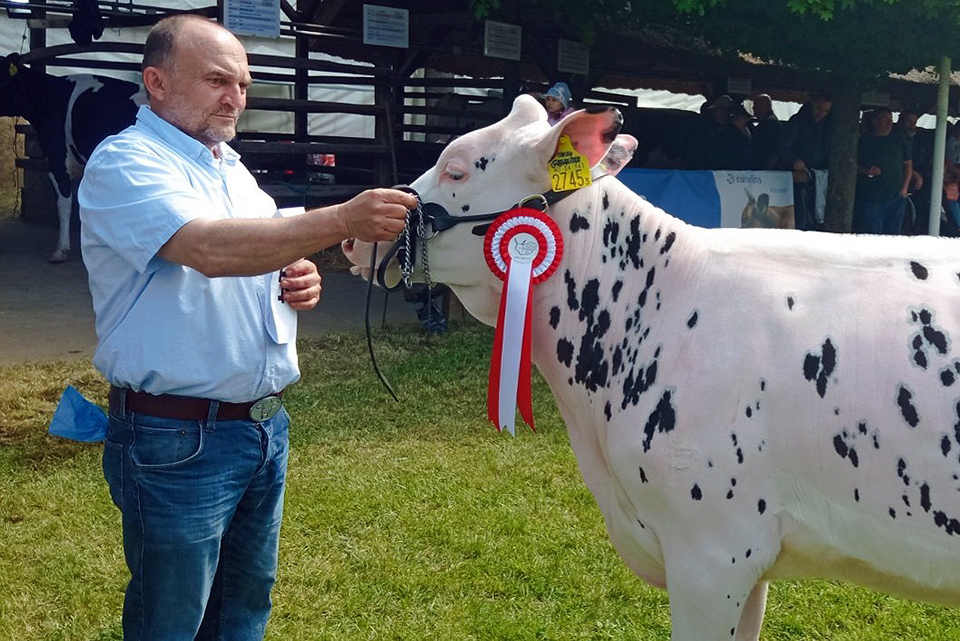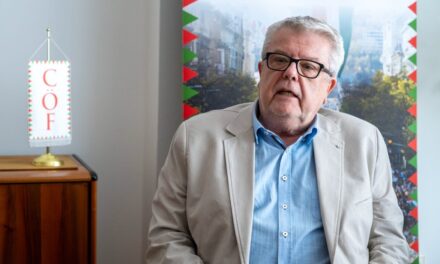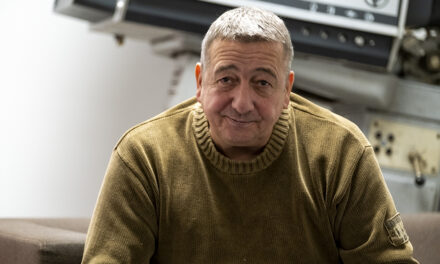The successes of Pálhalmai Agrospeciál Kft. may not break through the stimulus threshold of the average reader, but if we say that it is a business company of the penitentiary (bv), where many prisoners are employed, perhaps we can arouse interest. If only because the company is engaged in professional cattle breeding, the proof of which is that their cattle win prestigious awards year after year.
Agricultural activity has been taking place on these lands since the 1950s - Lt. Col. Tamás Bényei, the company's deputy managing director, shows us the lands on both sides of the road as we head towards the Parrag heifer farm. The reason why we are here is Roló, the virgin heifer who recently achieved great success: she won a silver medal at the 30th Alföldi Animal Breeding and Farming Days Exhibition and Fair. Roló came second among nearly eighty cattle.
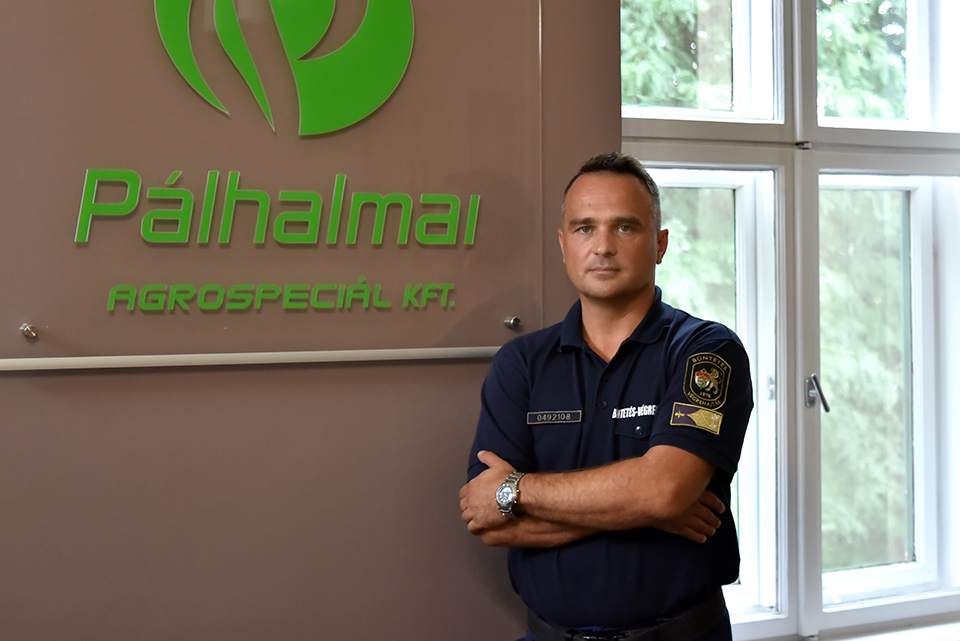
Photo: Tamás Császár
The cattle's success is not unique, in the past many cattle have won prizes at various agricultural exhibitions and competitions. Before Roló, Süsü and Rulett also won several awards for Agrospecial. There was an animal that won a competition several times. "Roló is a very beautiful breeding animal, so in the future I would like to utilize his genetic stock in our herd of nine hundred individuals, that is, our goal is to give birth to offspring similar to him," says Tamás Bényei.
It is good if the back and buttocks form a right angle
Agrospeciál Kft. has several locations, we get into the car with Tamás Bényei again and drive to the company's site in Hangos. We have a good reason to visit there: we want to get to know the everyday life of the state-owned company that (also) deals with animal breeding, but also serves market needs at a high level. The place is special, as a significant number of prisoners are employed in the Hangos colony.
The facility looks essentially the same as an average animal farm, except that this place is surrounded by high fences and barbed wire.
We meet head of department Norbert Zelei in his office, he proudly shows the trophies and certificates won by the cattle raised here. "The animal must have a very good bloodline, the pedigree is important ," he points out what it takes for a cattle to gain prestigious recognition. "Our contracted partner compiles the program on the basis of which bulls we use for hedging. Italian, Dutch, American, Canadian and German individuals with excellent genetic lines can only be considered. The females are artificially inseminated, i.e. the physical presence of the bull is not necessary, the sperm cells are cooled in liquid nitrogen and mailed to them," informs the head of the department.
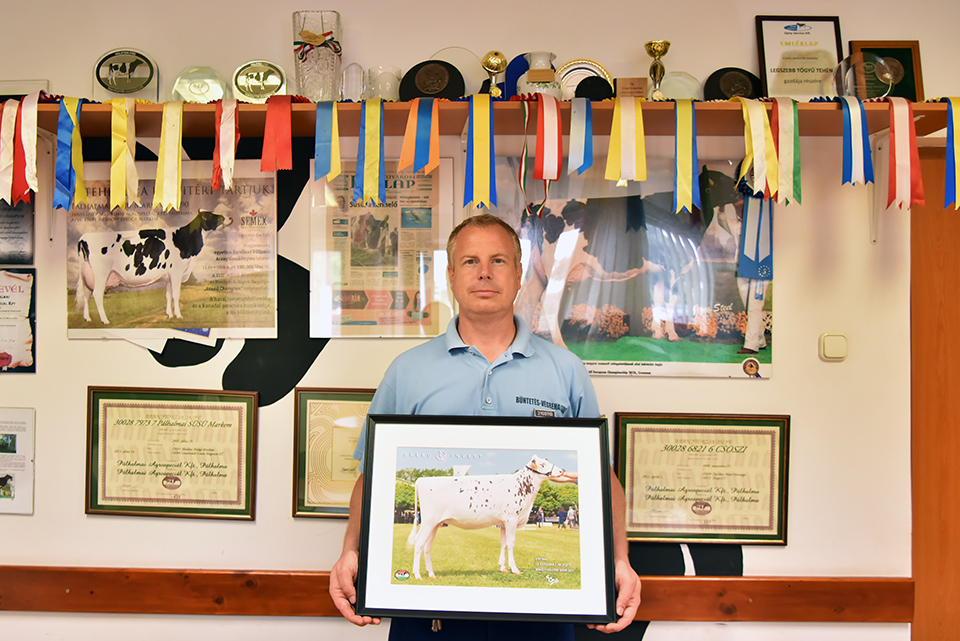
Photo: Tamás Császár
Leg and udder structure, machine milkability are important value-measuring properties; during the competitions, they also examine the height, as well as whether the cattle's rear is steep, whether its back is straight, and what angle these two body parts form with each other - a right angle is ideal. This is apparently only an aesthetic issue: the more the animal resembles a brick, the easier it is to give birth to its calf.
"Genetics, environmental impact, quality food, and preparation all play a role in winning an award," continues Norbert Zelei. "We started cleaning Roló's hair with WU2 shampoo a month before the competition, which we also trimmed to style. In addition, we got him used to leading - because, like in the race of purebred dogs, it doesn't matter at all who leads the cattle. You have to get the animal used to how to stand, to hold its legs," explains the head of breeding.
The animals recognize it in a few weeks
We go back to the stables. Tamás Szigeti, an inmate on the farm, waters the calves, who had never worked in agriculture before. When he came to Pálhalma, he worked in the kitchen for a long time, but he prefers this job because it is not so monotonous, he says, and he can almost "freely" take care of the animals.
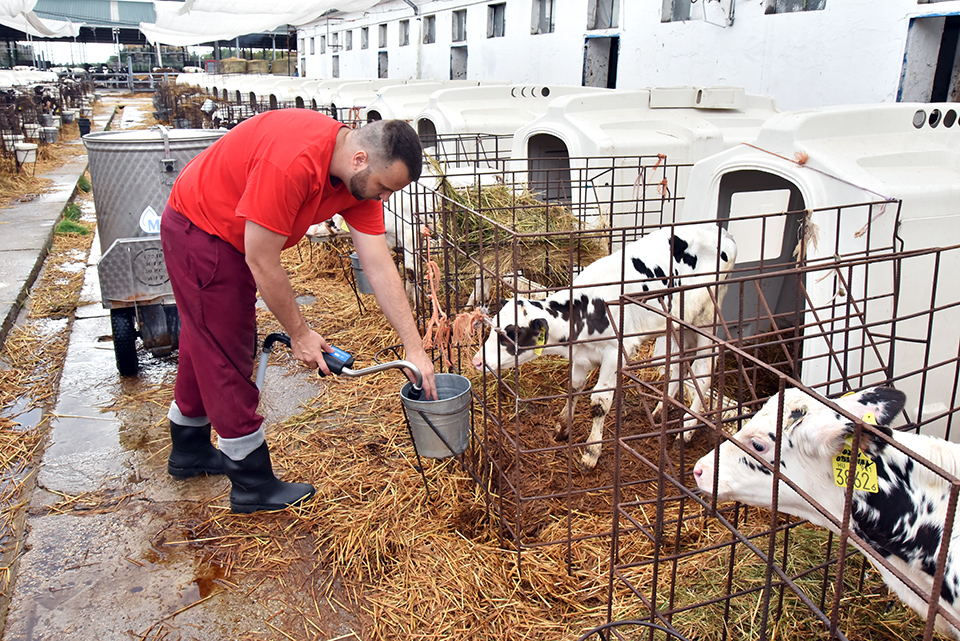
Photo: Tamás Császár
He gives milk replacer to the heifers and milk to the bulls, then straws them and pours water on them. The calf that does not want to drink is given a drink separately; He takes care of 93 heifers and 28 bulls. Work fills you with a good feeling. We set off with him on his tour, and what he said before is confirmed: the calves recognize him from afar. When he pulls his drinking cart, the "milk taxi", between them, many animals roar.
"I fell in love with animals so much that when I am released in a few months, I would like to complete a course to drive a truck, I would like to transport animals mostly"
- says Tamás Szigeti.
It is also suitable for the reintegration of prisoners
After the convicts are sent to Pálhalma, a professional committee decides in which field they should be employed, taking into account their personal parameters, background, professional skills and security level. Work is not a matter of choice, prisoners with a final sentence are obliged to do the work offered by the penitentiary, if their health allows. Convicts are employed for eight hours a day; of course, if the area requires it, in several shifts. Caring for cattle offers a wide range of employment opportunities.
"We can provide prisoners with daily work, which also helps the reintegration process to be successful," emphasizes Tamás Bényei. At Pálhalmai Agrospeciál Kft., approximately two hundred prisoners are employed. At his company, they strive to even expand the number of employees with new opportunities.
In the cattle farm of Agrospeciál Kft., Holstein-Friesian herds are raised, mainly for their milk (the breed is the most suitable for this anyway), which is sold on the open market. More than seven hundred animals are milked twice a day, rotation is necessary due to aging, so it does not matter what genetic stock individuals grow. The animals are regularly introduced into the milk production chain.
The system works well, at Agrospecial they produce and sell 20-22 thousand liters of milk per day to their purchasing partners within the framework of inmate employment. This means 7.5-8 million kilograms of milk annually, which corresponds to a strong medium volume compared to the players in the national market. Based on the internal quality of the milk, its protein and fat content, it is considered excellent, as the feeding recipes are put together by their highly qualified team.
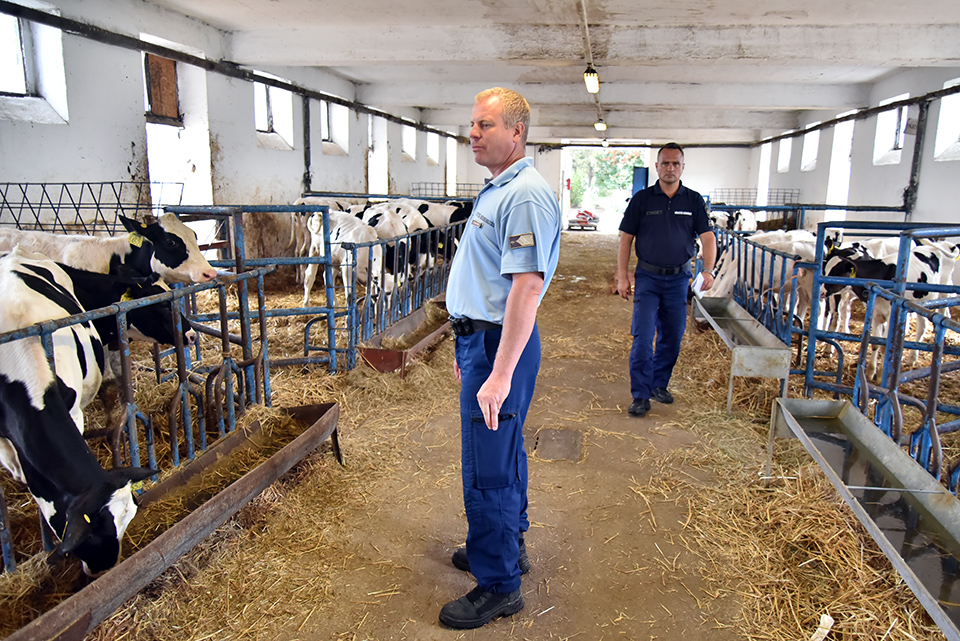
Photo: Tamás Császár
Regarding bulk feed, they can rely entirely on the feed they produce themselves. The system is an interdependent, well-composed agricultural "machine", as the resulting organic manure can be used in crop cultivation. In addition to the cattle breeding sector, they also maintain a pig sector. Their products are cut, skinned or skinned half-pigs, which are produced in their own slaughterhouse. The product is delivered to BV institutes as part of internal supply. They also produce live animals, as well as rendered fat and rendering, which are sold on the market and for internal supply.
In addition to large-scale livestock breeding, Agrospecial also deals with agriculture. Cereals, corn, barley, wheat, rapeseed, and sunflower are mainly grown on the fields. In addition, bulk feed intended for animals, rye and silage corn are also produced on their land, I learned from Tamás Bényei.

